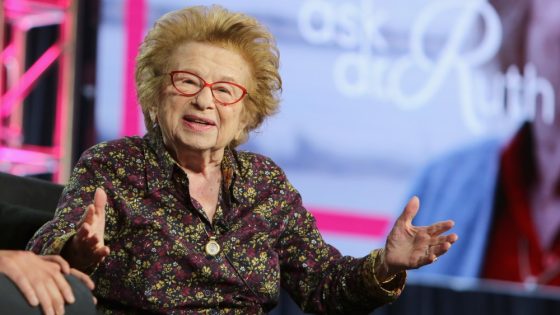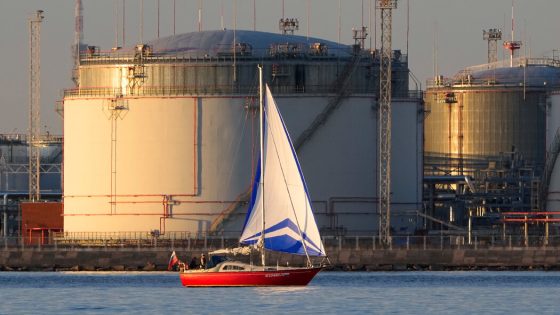Key Points
- Some Chinese migrants took on milk bars as a way to fast-track permanent residency.
- Business Innovation stream visas (subclass 188 and 888) have both been discontinued as of 1 July.
- Milk bars are closing due to competition from larger supermarkets and convenience store franchises.
China migrant, Kai Zhang, said he discovered a Chinese friend had obtained their permanent residency via investing in a milk bar in Glenroy in Melbourne’s northwest.
With no experience in retail, Zhang bought the business from his friend and sought to copy their visa method.
“It was an economical and affordable migration pathway,” Zhang said.
Earlier this year, Zhang was granted his permanent visa and this prompted him to then sell his milk bar, thankful of the opportunity it had provided him.
However, the federal government has now closed this pathway from 1 July, saying the were “not delivering what Australia and the economy needs from a migration system”.
Zhang owned and operated the business throughout the COVID-19 pandemic and said he was able to lift its revenue from $250,000 per year to $750,000.
“I was able to chat to locals and learn about Aussie lifestyle and culture,” he said.
It allowed a migrant family like ours to quickly integrate into society.
Kai Zhang, recent milk bar owner-operator
“I learnt about the demands of the market and also found other business opportunities by running it.”
Milk bars were once synonymous with Greek migrant-run businesses.
Why? For one, its knew they didn’t need much English to run their businesses.
Secondly, they knew that if they worked hard, “they could make a crust and create a good life for their children”.
This was at least the thinking of Greek migrant Joachim Tavlarides who owned The Black and White Milk Bar in Sydney, Australia’s first milk bar.
Milk bars, essentially suburban, family-run and smaller-scale forms of convenience stores, became a stepping stone for their Greek heritage, Australian-born children to fulfil their dreams.
Those same dreams today are more likely to have been adopted by migrant groups born elsewhere.
Like Zhang, Louise Yu is a recent milk bar owner-operator.
Originally from Shandong province in China, Yu arrived in Australia in 2007 with her husband.
Louise Yu’s children grew up in the shop and help out from time to time. Source: Supplied
For a non-English speaking migrant, she said running a milk bar in Greensborough, in Melbourne’s northeast was an ideal way to raise their young family in a new country.
Like Greek migrant owners before her, she said she viewed the small business as a way to adapt to the Australian way of life whilst earning a modest income.
My English is not good so it’s easy for me to run such a store. It’s just time-consuming.
Louise Yu, milk bar owner
She said the milk bar’s slow and steady pace suited her.
“I get to practise my English with customers,” she said.
A found that over one third or 620,000 Australian small business are run by migrants, and 83 per cent of them had never owned a business before coming to Australia.
Kai Zhang says owning a milk bar had helped him obtain permanent residency. Source: Supplied
Registered migration agent Jake Zheng said Zhang’s experience was echoed by other Chinese nationals who saw investing in such businesses as an affordable way to obtain Australian permanent residency.
Applicants willing to invest at least $200,000 (varies according to the state or territory) to establish or buy a business could apply for the Business Innovation and Investor temporary visa (subclass 188), launched in 2012.
Zheng said the scheme became popular in 2015 because Chinese migrants learnt they could later apply for permanent residency (PR) on the back of the subclass 888 visa.
Many people started mirroring others who shared their success stories in gaining permanent residency through this investment method. They may not have liked it (running milk bars), but they did it.
Jake Zheng, registered migration agent
The federal government announced earlier this year that the from 1 July.
Migration agent Jake Zheng says buying and investing in a milk bar became a popular way of getting Australian permanent residency. Credit: Jake Zheng
Zheng said the discontinuation was a reasonable move by the government because its intention was to attract business investors that drove the economy and employment.
As one- to two-people operators, “these type of enterprises like milk bars obviously don’t fit the model,” he said.
He refused to conclude if the closure of the 118 and 888 visa migration pathway would result in the end of milk bars.
“(They) will be eliminated by the market, not because of visa type cancellation,” he said.
Changing face of Australia’s milk bars
The milk bar Yu runs today is very different to those run in the past.
Unlike in the 1930s where milk bar operators were more likely to serve milkshakes, hence the name ‘milk bar’, Yu often appears from behind the counter with empty bottles and cartons.
By the 1970s, hundreds of milk bar owners had little option but to diversify their businesses by selling cigarettes, newspapers, milk, bread and lollies in the face of competition from fast food chains.
Yu’s answer to rivalry from the same competition as well as supermarkets with extended trading hours has been found in Victoria’s container deposit scheme.
“Doing business is harder. The government is promoting recycling, which is helping us run our business. Community members who never shopped with us before are now coming because they can drop off their containers at the same time,” Yu said.
Sunday trading of stores other than milk bars in the late 1980s “decimated” the small businesses.
“Government policy and their tendency to do whatever big retailers want led to the demise of corner shops,” said Domenic Greco, the former Executive Director of CAMBA (Convenience and Mixed Business Association) that represented milk bars and independent convenience stores before it shut down in 2018.
“This then made it difficult for us to survive after being in operation for 103 years.”
Greco said in 2014, the number of milk bars in Victoria had fallen to 1,500 from around 6,000 in 1980s.
The industry body Australasian Association of Convenience Stores told SBS Chinese it didn’t have any statistics on the number of remaining milk bars.
Some have been converted into cafes and restaurants, such as Jerry’s Milk Bar in Elwood, Melbourne, located in a heritage-listed building that used to house a traditional Greek milk bar.
Although its heritage listing prevents it from changing its business name, the restaurant’s menu still features milkshakes as a nod to the venue’s previous owners.
It remains unknown what the role of the milk bar will be in Australia in years to come and who will be running them.
Despite no longer being in the business, Zhang said milk bars wouldn’t die out any time soon.
“The market is stable. Revenue is determined by how well the owner manages the shop,” he said.
As for Yu, she said she valued more her relationship with her local Australian clientele.
“I no longer view them as customers. They’re friends who are happy to catch up,” she said.
Milk bars help newly arrived Chinese migrants set themselves up in Australia financially, “but not earn big money,” she said.
“People with better language skills would be better off doing other things.”






